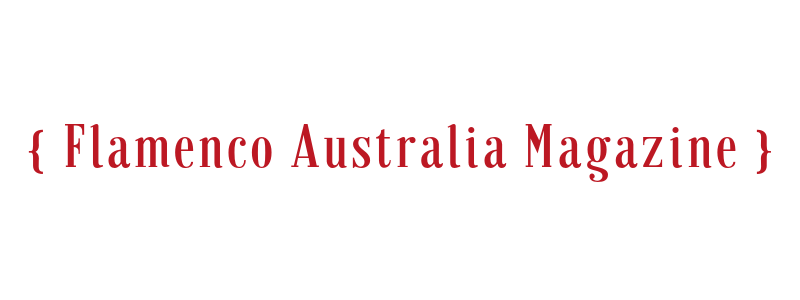What to expect from your first flamenco dance workshop
You’ve started flamenco dance classes, you’ve got the shoes, you LOVE flamenco. What’s next?
The flamenco workshop!
Regular weekly dance classes are the best way to improve your flamenco dancing (and we are lucky in Australia to have a plethora of great teachers) but flamenco workshops are a popular way to push yourself a little bit further. Maestros from Spain visit Australia every year, often visiting two or three capital cities to run workshops at different levels.
If you’ve never attended a workshop before and you’re not sure what to expect, here are a few considerations.
Content
Generally speaking, visiting teachers structure workshops around a particular palo. This doesn’t necessarily mean you’re going to learn an entire dance, but more likely you’ll cover one or two letras depending on how long the workshop is and the level of difficulty. Nonetheless, it can be a lot of content to absorb in a short time. Everybody learns at a different rate, so don’t worry if you find it challenging to absorb everything at first. A workshop is not just about picking up the steps, it’s also a way of refining your technique and deepening your understanding of the feel and style of the palo.
Level
Workshops are usually offered at Beginner, Intermediate and Advanced levels. This gives us a guide to the level of difficulty we can expect in the course. But remember it’s just a guide. Workshops bring together students from different backgrounds and experiences so it’s likely you’ll be dancing alongside some new friends. The challenge for the visiting teacher is to pitch the workshop at a level that is suitable for the majority of the students in the class. This may mean things are a little harder than your normal classes, or you may find the level suitable but there’s just one step that’s proving too tricky. That’s good! The idea is to challenge yourself!
Language
It’s no surprise that professional flamenco teachers from Spain speak…. well, Spanish! Workshops are usually run in Spanish, often with a translator present, although it’s not always practical to translate everything. Even if you don’t understand any Spanish, however, this shouldn’t be a roadblock. Spanish flamenco teachers are accustomed to working with foreign students and are able to express a lot of their teaching through gestures and demonstrations. As Sharon Tickle commented about workshops on the Flamenco Australia Magazine Facebook page, she “…discovered flamenco is a universal language that speaks to and from the heart.”
Some tips
Workshops provide a great opportunity to challenge yourself outside of your regular classes. You are likely to be learning a lot of new things in a short space of time, and you may be stepping a little outside of your comfort zone. A workshop by its very nature is intense, so here are a few tips to help you focus and get the most out of the experience.
Don’t worry about getting everything right. Concentrate on getting the feel of the palo.
Everyone has their challenges. Forget those around you and focus on what you need to work on, be it technique for a particular step or dancing with expression.
Even if you don’t speak Spanish, listen to the teacher and observe their movements and expressions.
Don’t put too much pressure on yourself. Enjoy it and have fun!
Be sure to check out the calendar for upcoming workshops, and if you have a tip about flamenco dance workshops, please leave us a comment below!
